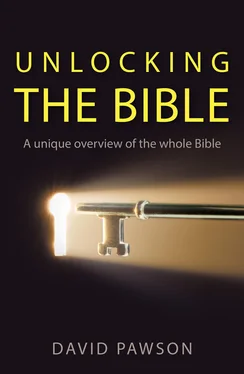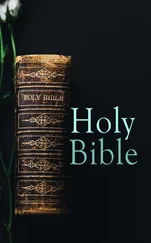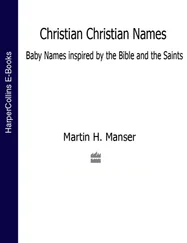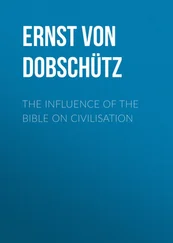Orpah agreed and went back to Moab and is never heard of again. On the basis of her choice she had no more place in God’s purpose. Ruth, however, went with Naomi and her name has gone down in history as an ancestor of Our Lord Jesus Christ.
The story carries the reminder that much can hang on just one decision. It is the choices we take that make up our character, and Ruth made the right choice at the right time.
At last we see someone whose actions break out of the endless cycle. Ruth became part of God’s line instead. Her name is mentioned in the genealogy of Jesus in Matthew, despite the fact that she was both a Gentile and a woman.
2. Daughter-in-law’s loyalty
Ruth was a beautiful character, both inside and out. She was full of humility and yet she had the sort of boldness that men find attractive. She was loyal, with a serving spirit, but she was not passive or an underdog by any means.
She not only chose to stay with Naomi, but chose Naomi’s people and Naomi’s God. God was evidently real to her, even though she had seen him punishing his people. On four occasions she said ‘I will’ to Naomi. In being so loyal to Naomi she demonstrated her love for her. ‘Loyalty’ and ‘love’ are almost the same word in Hebrew. Love that is not loyal is not true love. Likewise, God’s covenant love for his people means that he sticks with them through thick and thin.
Furthermore, we read that Ruth found ‘favour’ in the eyes of the Lord. In Hebrew, ‘favour’ is the same word as ‘favourite’ – she became one of God’s favourites. It is clear from the story that Ruth became the talk of the town in Bethlehem, for the Lord did not stop showing his kindness to Ruth.
3. Redeemer kinsman’s love
The second half of the book includes two influential men, Boaz and the man who would become king.
Boaz was a man of great standing and great generosity. It was common for the poor to be allowed to collect any grain remaining in the field after harvest, but Boaz instructed his workers to make sure that Ruth especially received a large provision.
There are two other customs in the book of Ruth which we must appreciate in order to understand the unfolding drama. The first is the Levirate marriage. In the year of Jubilee, every 50 years, all the property was returned to the original family that owned it in the previous Jubilee year. It was imperative, therefore, that there was a male family representative to claim the property after 50 years. The Levirate law stated that if a woman’s husband died before she had a son to pass on her inheritance, her husband’s brother had to marry her and give her a son, thus keeping the property in the family. Ruth, of course, had been married to someone who was entitled to property, but now she had no husband or son, so a relative was under the obligation to marry her to keep her husband’s name and line going and reinherit the property when it became available in Jubilee year.
The second law to understand was a social custom. A girl could not propose marriage to a man in those days, but she was free to indicate that she would like to be married to someone and could do that in a number of ways. One was to warm the man’s feet! So when Ruth lay at Boaz’s feet and covered them with her cloak she was indicating that she would not mind being married to him. These two customs explain how Boaz married Ruth.
When Ruth lay at Boaz’s feet, it was a clear sign that she was interested. He was flattered that she had chosen him, as he was neither the oldest nor the youngest kinsman she could have chosen. However, his older brother was the one who should fulfil the legal duty, so he had to give him first option! His older brother gave his consent in the customary way, taking off his sandal and giving it to Boaz – the equivalent of shaking hands on a deal. Ruth and Boaz were free to marry.
4. Royal king’s line
It is a beautiful story – a lovely rural romance. But we must ask what God was doing behind all this, for it is unlikely that the story would be included in Scripture merely as a light interlude. It becomes clear that God was preparing a royal line for a king of Israel. Ruth’s right choice in joining with Naomi and returning to be part of her people was part of God’s right choice, for he had chosen her to be part of the royal line.
Indeed, although God is not directly identified as being involved in the drama, he is frequently mentioned in the book, as the characters ask him to bless others. Naomi asked the Lord to bless Ruth for being with her. The harvesters asked God to bless Boaz and he returned the blessing to them. Boaz asked the Lord to bless Ruth for choosing him. When they spoke of God they used God’s name, YAHWEH, a name which functions like ‘always’ in English – God is ‘always’ my provider, ‘always’ at my side, ‘always’ my healer.
It is interesting to note that Boaz was a direct descendent of Judah, one of the 12 sons of Jacob. He was also a descendant of Tamar, who had offspring after she was raped, which shows that God can use the most unlikely situations as part of his plan. Jacob gave a prophecy to Judah on his deathbed: ‘The sceptre will not depart from Judah nor the ruler’s staff from between his feet until he comes to whom it belongs.’ This was several centuries before they thought of having a king, and yet Jacob promised Judah that a royal line would come from his house.
We learn too that Boaz’s mother was not a Jew. Rahab the prostitute was the first Gentile in the land of Canaan to embrace the God of Israel. So we have a mixed family tree: Tamar was raped, Rahab was a Gentile and a prostitute, Ruth was a Moabite. And yet these are all ancestors of our Lord Jesus Christ.
Who wrote Judges and Ruth?
It is time now to examine why Judges and Ruth belong together, and also to answer the question: Who wrote them and why?
The end of a book of the Bible often reveals its purpose. The phrase, ‘There was no king in Israel in those days’ means that the book of Judges, and therefore Ruth as well, was written after they were led by a king. It is also obvious from the end of Ruth that David was not the king at the time of writing, for we read, ‘Jesse was the father of David,’ not ‘Jesse was the father of David the King.’
These two facts strongly suggest that the book was written when there was a king, but before David’s time. The only period when this was the case was when Saul was king, since David was king directly after Saul. So the book was written when Saul, the first king of Israel, was on the throne, the people’s choice. He was chosen for his height and his physical appearance – not for his character or ability.
If we know when the book was written, we can also ask who wrote it. The speeches of the prophet Samuel in the first book of Samuel have been found to be identical in language to the book of Judges and Ruth. And it was his style to teach from the history of his people. It is most likely, therefore, that Samuel wrote Judges and Ruth as one book, when Saul was king.
More of the purpose for writing can be discerned when we ask which tribe King Saul came from. The answer is Benjamin. The whole message of the two books is that Benjamin is bad stock, in contrast to Judah and those in Bethlehem. In other words, the two-volume work was written to prepare the people to switch from Saul to David. Samuel had secretly anointed David but needed to prepare the people to accept him as king rather than their own choice of Saul.
He asks his readers to compare the degraded men of Benjamin with the delightful people in Bethlehem. At the very end Samuel mentions that Jesse was the father of David, knowing that he was God’s appointed king and was going to change the whole situation.
This theory is backed up by a detail included in the first chapter of Judges. When the tribe of Judah entered the Promised Land the city of Jerusalem was assigned to the tribe of Benjamin. But the early part of Judges tells us that the city was in the hands of the Jebusites ‘to this day’, implying that Benjamin never conquered it. One of David’s first acts as king, recorded in 1 Samuel, was to capture the city. This provides further clarification for the date of the book and confirms the likelihood that its purpose was to encourage people to be pro-David. The position of Ruth alongside Judges brings two cities into view: Bethlehem, the ‘house of bread’, David’s home town, and Jerusalem, occupied by the Jebusites but soon to become the nation’s capital.
Читать дальше











